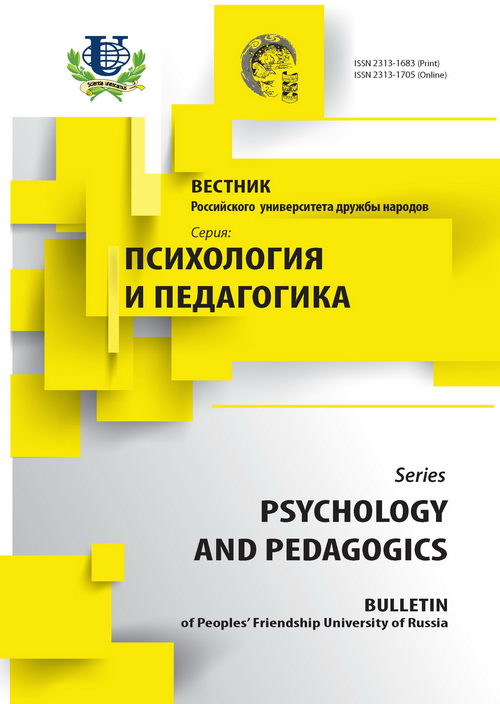Intercultural adaptation to Russia of students from Asia, Africa, Latin America and the Middle East
- Authors: Chebotareva EJ.1
-
Affiliations:
- Peoples' Friendship University of Russia
- Issue: No 3 (2011)
- Pages: 6-11
- Section: Articles
- URL: https://journals.rudn.ru/psychology-pedagogics/article/view/8178
- ID: 8178
Cite item
Full Text
Abstract
The article presents the results of empirical research revealing the cultural specificity in the levels and combinations of various aspects of intercultural adaptation of foreign students from Asia, Africa, Latin America, the Middle East and Central Asia to Russia. Students from Central Asia and Latin America have the most harmonious style of intercultural adaptation. In their structure of adaptation their outlook plays the leading role. Socialization occurs at a deeper (intrapersonal) level. Chinese students have a controversial and least effective style of adaptation. Emotional intelligence plays the leading role in it. It's very important for the Chinese to have clear goals in life and confidence in their accessibility, but uncertainty in foreign cultural environment frustrates them.
Keywords
intercultural adaptation, socialization, ethno-psychological features, Asia, Africa, Latin America, the Middle East, Central Asia, types of ethnic identity, strategies of stress overcoming, life meaning orientations, basic convictions, social distance, social roles, social intelligence, emotional intelligence, style of self-control, tolerance
About the authors
E Ju Chebotareva
Peoples' Friendship University of Russia
Email: chebotarevy@yandex.ru
; Peoples' Friendship University of Russia
References
Supplementary files














